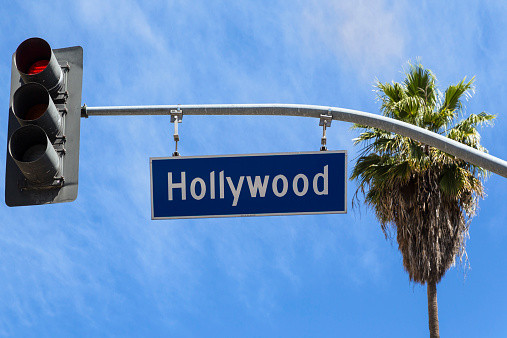
Hollywood actors have declared their support for a screenwriters' strike, leading to the largest industry shutdown in over 60 years.
At midnight in Los Angeles, approximately 160,000 performers will cease work, resulting in the suspension of the majority of film and television productions across the United States.
The Screen Actors Guild (SAG) is advocating for streaming giants to negotiate a more equitable profit distribution model and improved working conditions.
Additionally, the guild aims to safeguard actors from being replaced by digital replicas or virtual counterparts, emphasizing the need to protect their creative and professional integrity.
As part of their demands, the Screen Actors Guild (SAG) is seeking assurances that artificial intelligence (AI) and computer-generated faces and voices will not be used as replacements for actors.
Throughout the duration of the strike, actors are prohibited from participating in film projects or promoting movies they have previously worked on.
The impact of the strike was evident when actors Cillian Murphy, Matt Damon, and Emily Blunt left the premiere of Christopher Nolan's Oppenheimer in London as the strike was declared.
Christopher Nolan, the film's director, expressed his support for the actors' cause and informed the cinema audience that the actors had left to join the strike and create picket signs.
Various actors, including Bob Odenkirk from Better Call Saul, Cynthia Nixon from Sex and the City, and Jamie Lee Curtis, used Instagram to voice their solidarity with the strike.
Picketing is scheduled to commence on Friday morning outside Netflix's California headquarters and will subsequently move to other major studios such as Paramount, Warner Bros, and Disney.
This form of protest is aimed at drawing attention to the actors' demands and highlighting their concerns regarding AI-generated replacements in the industry.
The SAG's national executive director and chief negotiator, Duncan Crabtree-Ireland, said it was unacceptable.
"They propose that our background performers should be able to be scanned, get paid for one day's pay, and their company should own that scan of their image, their likeness, and should be able to use it for the rest of eternity," he said.
"If you think that's a ground-breaking proposal, I suggest you think again."
Duncan Crabtree-Ireland, the national executive director and chief negotiator of the Screen Actors Guild (SAG), expressed strong disapproval of the situation.
He deemed it unacceptable, likely referring to the use of AI-generated replacements or the issues that led to the strike. His statement reflects the firm stance of the SAG and their determination to address the concerns and demands of their members.
The AMPTP said the strike was "certainly not the outcome we hoped for as studios cannot operate without the performers that bring our TV shows and films to life".
"The union has regrettably chosen a path that will lead to financial hardship for countless thousands of people who depend on the industry," its statement added, BBC reported.
The union officially goes by the name of the Screen Actors Guild-American Federation of Television and Radio Artists, commonly referred to as SAG-AFTRA.
In addition to concerns about the use of AI and digital replicas, another key demand of SAG-AFTRA is for streaming services to provide actors with higher base pay and improved residuals. Residuals are payments made to actors for the repeated airing or streaming of films and programs in which they have appeared.
The strike encompasses tens of thousands of actors, including those who receive substantially lower compensation for minor roles compared to their A-list counterparts.
"In the old model, they get residuals based on success," Kim Masters, the editor-in-chief of the Hollywood Reporter, told the BBC. "In the new model, they don't get to find out what's going on behind the scenes, because the streamers don't share."
Fran Drescher, SAG's president, said the strike came at a "very seminal moment" for actors in the industry.
"What's happening to us is happening across all fields of labor," she said, "when employers make Wall Street and greed their priority, and they forget about the essential contributors that make the machine run."
During a gathering of industry leaders at an Idaho resort preceding the SAG's announcement, Bob Iger, the CEO of Disney, expressed his view that the demands put forth by both actors and writers were impractical and could harm an industry that is still recovering from the effects of the pandemic.
"It's very disturbing to me," Iger said. "This is the worst time in the world to add to that disruption."
Iger suggested that meeting these demands might not be feasible given the current circumstances.
It's worth noting that the Directors Guild of America, a separate union representing directors, had previously negotiated a contract in June and will not be participating in the strike alongside SAG-AFTRA and the screenwriters.
© 2025 Latin Times. All rights reserved. Do not reproduce without permission.




